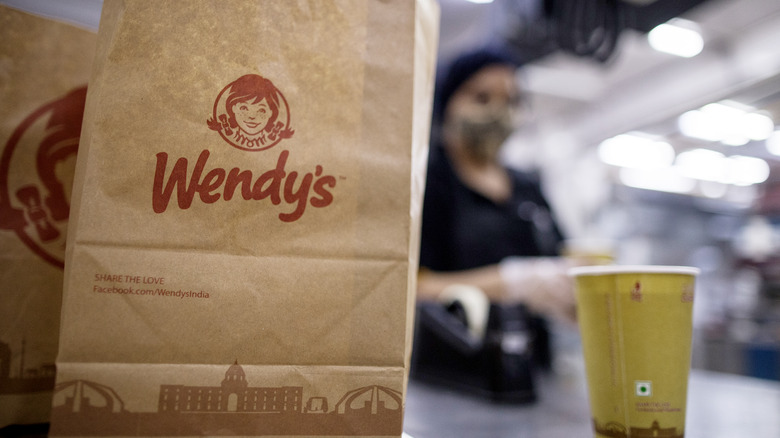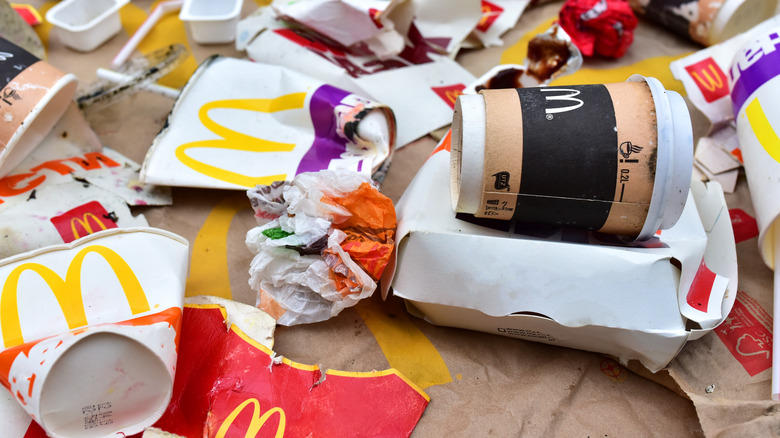Wendy's Just Became The Latest Restaurant To Ban This Toxic Chemical
Wendy's has announced that it will remove per- and polyfluoroalkyl substances (PFAS) from its packaging by the end of the year. The commitment was made as an afterthought in its 2020 Corporate Responsibility Report after declaring it would establish a restricted substances list, explore straw-less lids, and move away from plastic salad containers and utensils in its Canadian restaurants.
"This announcement proves that it is feasible for large companies to phase out PFAS in food packaging by the end of this year," Mike Schade, the campaign director of anti-toxic chemicals in consumer packaging campaign Mind the Store, enthused to Safer Chemicals, Healthy Families, before spinning the victory into a dare to other brands. "But now the big question is, will Burger King finally take action? Our testing found that these chemicals are likely being used in packaging at Burger King — including the wrapper for the Whopper. With more than 2 million Whoppers sold per day, this impacts millions of people each week."
This announcement and side eye occurred a few months after McDonald's declared its intention to remove PFAS from all of its packaging by 2025. According to a report by FOX, an investigation conducted by Mind the Store and Toxic-Free Future into the packaging materials of Burger King, McDonald's, and Wendy's prompted this decision. Mind the Store lauded McDonald's intention, but rhetorically pushed the company to accelerate the phasing out process so that all materials are removed by 2022. In other words, Wendy's has won this round of PR responsibility.
Per-per poly what?
PFAS, as described by the FDA, is a group of man-made chemicals that have been used in products as wide ranging as paints, food packaging, and fire-fighting foams since the 1940s. This is due to the grease and water-resistant properties of the chemicals. So, in fast food, it keeps most of the greases wrapped with the Whopper.
With such a long use time, there are invested parties that dislike the measures pushed by Mind the Store. One voice for these parties is Plastics Today, a self-described "community for plastic professionals." In December 2020, the organization issued a piece responding to Amazon's announcement that it will remove harmful chemicals, including PFAS, from Amazon Kitchen's food packaging. Calling out Safer Chemicals, Healthy Families among others, the piece lambasts environmentalists for not listening to the fact that the FDA regards PFAS and plastics as safe in the small amounts used in food packaging. Never mind how, as Mashed covered, the FDA had grown increasingly laissez-faire under the Trump Administration.
It is true that the FDA has allowed limited use of PFAS in food packaging. However, it is also true that the United States Environmental Protection Agency warns that the chemicals of PFAS do not break down easily, meaning that regular small amounts may accumulate to a point where it may affect consumers' immune systems, thyroids, or even induce cancer. It may be best to limit exposure as much as possible.

